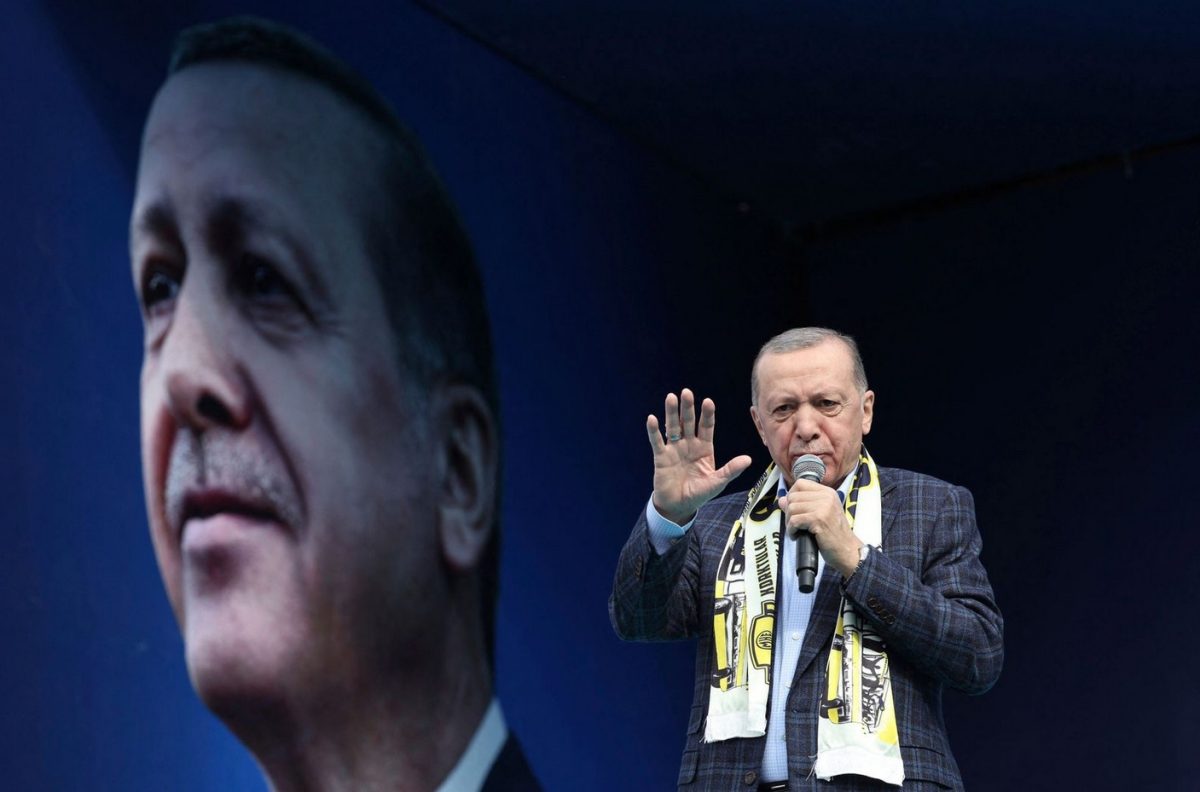With 97 percent of ballot boxes opened, Erdogan received 52 percent of votes in the second round on Sunday, beating his challenger, Kemal Kilicdaroglu, who won 48 percent.
The official Supreme Election Council has yet to confirm the results.
The vote seals Erdogan’s place in history as he extends his 20-year rule for a further five years.
He had already outstripped the 15-year presidency of the Republic of Turkey’s founder, Mustafa Kemal Ataturk.
As Erdogan’s victory seemed complete, crowds headed to the presidential palace in Ankara to wait for his celebratory speech.
Prior to that, Erdogan appeared outside his residence in Istanbul’s Uskudar, where he sang before thanking an adoring crowd.
“We have completed the second round of the presidential elections with the favour of our people,” Erdogan said.
The two-month election period witnessed one of the most bitter campaigns in recent memory.
Erdogan repeatedly referred to his opponent as being backed by “terrorists” – due to the support offered by the main pro-Kurdish party – while Kilicdaroglu ended the campaign by calling Erdogan a “coward”.
The campaign took on an increasingly nationalist tone, with the opposition in particular promising to force Syrians and other refugee populations to leave.
Sunday’s run-off vote was the first time since direct presidential elections were introduced in 2014 that the vote had gone to a second stage.
Despite citizens being called to vote again two weeks after May 14’s initial election, the turnout remained around 85 percent.
For Turks following the opening of ballot boxes on television, the results depended on which platform they were following – the state-run Anadolu news agency or the Anka agency, which has ties to the opposition.
The elections – a parliamentary poll was run alongside the leadership race on May 14 – were widely billed as the most important in recent Turkish history and took place during the centenary year of the republic’s foundation.
The choice between the candidates was portrayed in similarly striking terms – either an extension of Erdogan’s two-decade rule or a leader pledging a return to a parliamentary system.
The polls, in which more than 64 million Turks at home and abroad were entitled to vote, took place against a background of a cost-of-living crisis that saw inflation peak at 85 percent in October and earthquakes in February that killed more than 50,000 people in the country’s southeast.
Erdogan, who came to power in 2003, initially as prime minister, offered a vision of further development, promising to extend the improvements made by his Justice and Development Party (AK Party) government.
Following his success in the parliamentary election – the AK Party and its allies won 323 of 600 seats – Erdogan was also able to promise the stability offered by controlling both the legislature and the government.
Kilicdaroglu, meanwhile, pledged democratisation and a rollback of Erdogan’s “one-man rule” while addressing what he called economic mismanagement.
The nationalist tone preceding the presidential run-off was partly a bid to gain the support of voters who backed Sinan Ogan, the candidate who secured more than 5 percent of the vote on May 14.
Ogan eventually backed Erdogan, but other nationalists backed Kilicdaroglu.
Erdogan reached 49.5 percent in the first round against Kilicdaroglu’s 44.9 percent.
Having endured the last two months of campaigning, voters now have 10 months to steel themselves for local elections in March, when Erdogan will push to retake cities including Istanbul and Ankara that were taken by the opposition in 2019.
